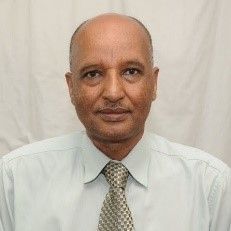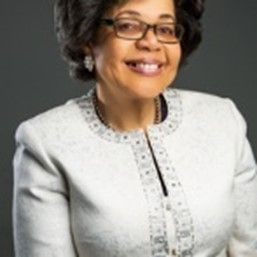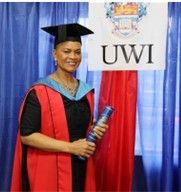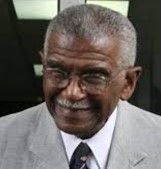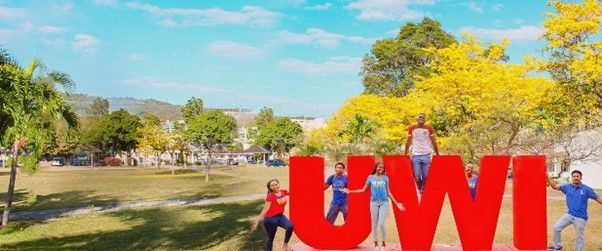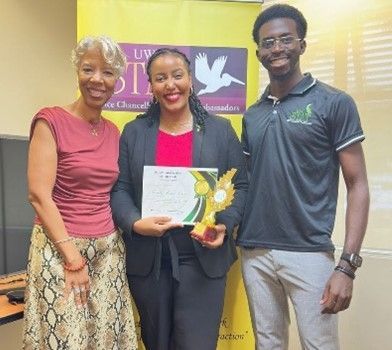"One UWI, One Alumni Family"
Prof. Michael Taylor - An IPCC Lead Author, OURP Advisory Board member and UWI's voice on Climate Action speaks
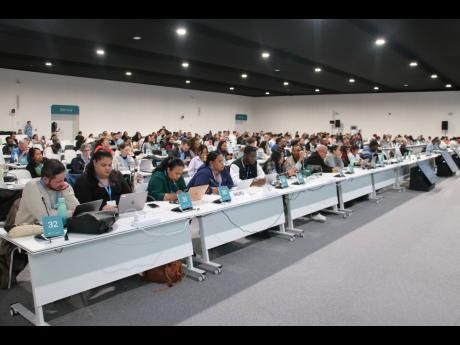
ON THE heels of a disappointing global climate talks (COP29) held in Baku, Azerbaijan, local pundits have encouraged small island developing states (SIDS) to redouble their efforts to secure needed financial resources and the political will for a safe climate future.
This follows the less than impressive deal from the COP, which yielded the promise of a mere US$300 billion a year by 2035 to support climate response efforts in the developing world, relative to the hoped-for US$1.3 trillion a year.
“I don’t know what to say. It really is not enough,” said climate scientist, Professor Michael Taylor, a physicist and dean of the Faculty of Science and Technology at The University of the West Indies, Mona.
He has suggested that SIDS and other developing countries continue to make best efforts to achieve the desired commitment from the developed world, given what is at stake. And he said the fact that making financial resources available to the developing world took primacy at the talks is a place from which to pivot.
“One hopeful thing is that this issue became the leading agenda item [at the negotiations].That to me represents an evolution, that SIDS and LDCs (least developed countries) are at last getting attention and that their survival is the priority issue … It is a glimmer of hope within the whole COP process,” the scientist said.
Against this background, he said it is now more important than ever to keeping pushing.
“Of course, the fact that the pledges were so small in comparison to what is really needed leaves you disappointed because it means that while there is the recognition of the need, there is still a lack of willingness to put the money where the mouth is. It means that the work of regions like ours continues,” he explained.
Climate change threatens the survival of Caribbean SIDS and other developing countries given the scale of the projected impacts, many of which are already being experienced and are exacerbated by existing vulnerabilities. These vulnerabilities include significant national debts, their small size and geographical location, which put them in the path of extreme hurricane events, even as they face threats to public health and undermined food and water security.
In addition to financing, Taylor said that also on the agenda for the developing world should be raised greenhouse gas emission ambitions in order to keep the 1.5 degrees Celsius temperature goal, as reflected in the Paris Agreement, alive.
That agreement sees countries committing to “holding the increase in the global average temperature to well below two degrees Celsius above pre-industrial levels and pursuing efforts to limit the temperature increase to 1.5 degrees Celsius above pre-industrial levels, recognising that this would significantly reduce the risks and impacts of climate change”.
“We have already seen how devastating it is and how much we have to push for raised ambitions. We really have to make a significant case for significantly raised ambitions. This is kind of the last chance, so we need everybody on board – media, the private sector, public sector, youth,” the physicist said.
Eleanor Jones, who heads the team at Environmental Solutions Limited (ESL), shares Taylor’s view. However, she has emphasised the need for developing countries to look more inward in order to secure their own climate futures.
“We are spending all this time on these negotiations, but we really are just inching along. I don’t know that they [developed countries] are really convinced that they need to take responsibility for the vulnerable states, especially SIDS. So, they make these statements, or you are forcing them to come to some sort of agreement, but with little progress each time,” she said. “Yes, they have an obligation based on what they have done but we need to recognise what is happening, what our vulnerabilities are and take our own climate action,” she insisted.
According to Jones, SIDS and other developing countries need to “pay attention to our nature-based solutions” while avoiding self-sabotage by, for example, pursuing developments in areas and at scales they should not.
“Let us pay attention to what we can do, the steps that we can take, because we have control over that. Let us also not say one thing and then do something else. We can’t control the rain, but we can certainly control what we do with what we get. We are not currently doing enough to take care of what nature has given us to take care of ourselves,” the ESL boss maintained.
Long-time climate justice advocate Indi Mclymont Lafayette echoed Jones’ sentiment. “The outcomes of COP 29 have been disappointing for SIDS, especially those around financing. Despite all the science and experiences showing that SIDS are experiencing the worst impacts of climate change: extreme flooding, stronger hurricanes, etc, the First World countries are not stepping up to the plate to help SIDS adapt,” she noted.
“The needs have been assessed in the trillions and the commitments are around US$300 billion. That’s a tremendous gap. It sends a message to SIDS that we have to look for other ways to ensure our survival,” Mclymont Lafayette added.
The Original Article can be access at the link Earth Today | ‘Push!’ Small island developing states urged to stay the course on climate needs | News | Jamaica Gleaner


